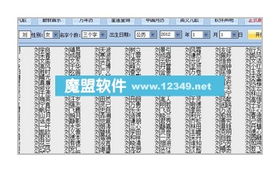Maximizing Efficiency in Industrial Manufacturing Processes
In the realm of industrial manufacturing, efficiency is paramount. The optimization of processes directly impacts productivity, costeffectiveness, and ultimately, the success of a manufacturing operation. Let's delve into key strategies and technologies that can be implemented to maximize efficiency in industrial manufacturing processes.
1. Lean Manufacturing Principles
Lean manufacturing is a systematic approach to minimizing waste while maximizing productivity. By identifying and eliminating nonvalueadded activities, such as overproduction, waiting time, unnecessary transportation, excess inventory, overprocessing, defects, and underutilized talent, companies can streamline their operations and improve efficiency.
Recommendation:
Conduct regular value stream mapping exercises to identify areas of improvement and implement lean tools such as 5S (Sort, Set in order, Shine, Standardize, Sustain), Kanban systems, and JustInTime (JIT) production. 2. Automation and Robotics

Integrating automation and robotics into manufacturing processes can significantly enhance efficiency by reducing manual labor, minimizing errors, and increasing throughput. Robotics can perform repetitive tasks with precision and speed, allowing human workers to focus on more complex and valueadded activities.
Recommendation:
Invest in flexible automation systems that can adapt to changing production needs and consider collaborative robots (cobots) that can work alongside human operators safely. 3. Advanced Data Analytics
Harnessing the power of data analytics allows manufacturers to gain insights into their processes, identify patterns, and make datadriven decisions for continuous improvement. Predictive analytics can anticipate maintenance needs, optimize inventory levels, and improve overall equipment effectiveness (OEE).
Recommendation:
Implement Industrial Internet of Things (IIoT) devices to collect realtime data from machinery and sensors, utilize machine learning algorithms to analyze data patterns, and integrate analytics platforms for actionable insights. 4. Supply Chain Optimization
Efficient supply chain management is essential for minimizing lead times, reducing inventory costs, and ensuring timely delivery of materials and components. Collaboration with suppliers, demand forecasting, and inventory optimization techniques can streamline the supply chain and enhance overall efficiency.
Recommendation:
Employ demanddriven strategies such as VendorManaged Inventory (VMI), JustInTime (JIT) delivery, and establish strong partnerships with reliable suppliers for seamless integration. 5. Continuous Training and Development
Investing in the training and development of employees is crucial for maintaining a skilled workforce capable of driving efficiency improvements. Providing opportunities for ongoing education, crosstraining, and upskilling empowers employees to contribute to process optimization and innovation.
Recommendation:
Develop a culture of continuous improvement where employees are encouraged to identify and implement efficiency enhancements, provide access to training programs and certifications, and recognize and reward employee contributions to efficiency gains.Conclusion
In the competitive landscape of industrial manufacturing, maximizing efficiency is essential for sustaining growth and profitability. By embracing lean principles, leveraging automation and robotics, harnessing advanced data analytics, optimizing the supply chain, and investing in employee development, manufacturers can enhance their operational efficiency and maintain a competitive edge in the market. Embracing a holistic approach to efficiency optimization will enable manufacturers to adapt to evolving market demands and thrive in the digital age.
I hope this comprehensive guide helps in enhancing efficiency in industrial manufacturing processes! Let me know if there's anything else I can assist you with.











